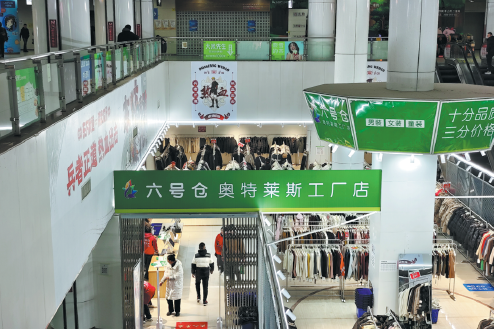Online consumption picks up as coronavirus epidemic levels off


CHONGQING - Online orders for non-epidemic prevention products have been on the rise in China as novel coronavirus epidemic levels off.
"I just bought three clothes online, and three of my parcels are out for delivery," said 25-year-old Zhang Yusi. "My budget for new clothes this spring is around 1,500 yuan ($214), nearly twice as high as usual."
Popular items around this year's Spring Festival holiday have been masks, sanitizers, instant noodles and other recreational products that are suitable for killing time at home as many were hit off guard by the outbreak of the novel coronavirus in late December.
As factories, stores and courier services are gradually resuming production and work, turnover on major e-commerce platforms has been rising, with more money returned to all-time bestsellers -- namely snacks, cosmetics and clothes.
"I snapped up masks and disinfectants online during the holiday, with the money I usually spent on snacks and cosmetics," said Shi Jinzhu, who lives in Dazu district, Southwest China's Chongqing municipality.
Dazu has not seen new reports of confirmed COVID-19 cases for 14 consecutive days as of Jan 24 and Shi believes it is time to get prepared for a prospective normal life.
"I recently purchased a box of eyeshadow. It's been over a month since I put on makeup," said Shi.
Li Yating, a new mom, used to spend over 2,000 yuan online every month. "I haven't bought anything for over a month and there are a bunch of items on my shopping list," said Li, adding that she had already bought quite a few baby snacks and two pairs of sneakers for her husband and herself.
Zhou Jie, Li's husband, invested in several PS4 games he has been longing for. "Each game costs about 100 to 200 yuan, which I begrudged spending money on. Now, they are my reward for having not spent any money recently," he said.
A report released by Alibaba's Tmall shopping platform showed that the hot sellers on its website have shifted from pajamas, instant noodles and dance pads before work resumption to items such as lipstick, trench coats and perfumes.
Meanwhile, women's clothing, small kitchen appliances and electronic products began to replace grain, oil, rice and flour as hot daily commodities, the report showed.
Li Jing, head of the Institute of Economics of Chongqing Technology and Business University, said that the pent-up consumption desire would be released as the epidemic is leveling off, and the rebound effect of consumption will compensate for the economic losses caused by the epidemic to a certain extent.
Li said past experiences have shown that compensatory consumption will also appear in offline consumption after the outbreak, especially in the service sectors such as tourism, catering and entertainment.
"In general, the overall impact of the outbreak on our economy is periodic and temporary," said Li.
The latest figures showed that the Chinese mainland's daily new confirmed cases of COVID-19 outside Hubei province, the epicenter of the outbreak, dropped to 5 on Tuesday. And the number of newly cured and discharged novel coronavirus patients has surpassed that of new infections for the eighth consecutive day.



































